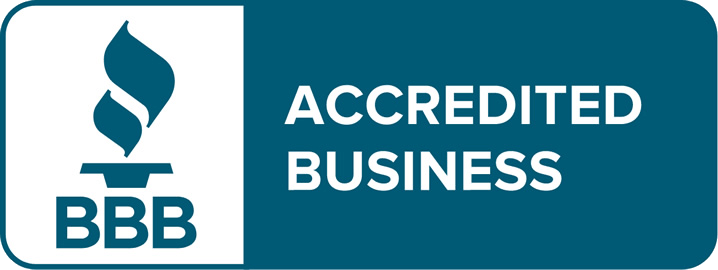What is a tax negotiator? If you have outstanding tax debts or made a mistake with payroll taxes, you may have looked into different forms of tax debt relief. Once you start digging, the information can get overwhelming. There are a lot of companies out there selling you on getting your tax debt wiped out. If your skeptic radar comes on when you see all the advertisements, that’s a good thing. Many of these tax debt relief companies lure tax debtors in with unrealistic promises. However, they continue to succeed because there is a kernel of truth in their offer.
In this article, we’re going to add important context to what tax negotiation is. We’ll discuss the different forms of tax negotiation and the qualifications. And we’ll explain the process of IRS tax negotiation so you can make an informed decision about whether you want to negotiate with the IRS yourself or hire a tax relief company to negotiate on your behalf.
Table of Contents
Can Tax Debt be Negotiated

You’ve likely seen the TV commercials with a pitchman saying you can settle your tax bill for “pennies on the dollar.” Just call now and say goodbye to your tax problems forever. This is the classic example of the false promise that makes people rightly skeptical of the idea of tax negotiations.
In real life, it’s not easy to get the IRS to settle a tax debt for pennies on the dollar. It does happen, but only in cases where a taxpayer clearly does not have the assets or income to pay the tax debt in a reasonable time. If you have income and assets, or will likely have them in the future, no amount of negotiating will persuade the IRS to settle for pennies on the dollar.
What these commercials are really talking about is getting the IRS to accept an Offer in Compromise. An Offer in Compromise is an agreement between a taxpayer and the IRS that settles the taxpayer’s debt for less than the full amount owed. An OIC is a type of negotiation – so there’s your kernel of truth.
But what’s missing in these “too good to be true” tax settlements is all of the other ways to negotiate with the IRS. Installment payment agreement, partial payment settlement agreement, doubt to liability, doubt as to collectibility, tax penalty abatement program, currently not collectible status, and innocent spouse relief are all other ways to negotiate to reduce your total tax obligation.
A transparent and trustworthy tax negotiation company will always explain your options and make sure you understand them before recommending any type of IRS negotiation.
Can You Negotiate With the IRS Without a Lawyer?

The short answer is yes. You do not need to hire a tax lawyer to negotiate with the IRS. If you’re facing a criminal charge or under investigation for tax fraud, it’s in your best interest to hire a lawyer.
So should you negotiate with the IRS without a lawyer?
It really depends on how comfortable you are with navigating the process, how much time you have, and how knowledgeable you are. In most cases where you’re considering a negotiation with the IRS, time is not on your side. The clock has been ticking, and you need to act to avoid more penalties and fees. It’s always best to resolve a tax debt issue as fast as possible. You save more money, and time, and eliminate stress from your life when you take action fast. This is why most people choose to get tax professional help when negotiating with the IRS.
So what does professional tax negotiation help look like? Do you need to hire a tax attorney?
No, you don’t need to hire a tax attorney. The most reputable tax relief companies will have agents on staff to help you negotiate.
What’s the Difference Between a Tax Attorney and an Enrolled Agent?

An enrolled agent or EA is a credential awarded by the IRS. It is literally issued by the Department of Treasury. Enrolled agents earn the credential by passing a written test by the IRS or they must have been a former IRS employee with at least five years’ experience in one or more of the following positions:
Appeals officer
Special agent
Revenue officer
Tax specialist
Tax law specialist
Settlement officer
In addition, applicants must pass a background check to receive their agent credential. To maintain EA status, agents must complete 72 hours of continuing education every three years.
Tax attorneys, on the other hand, are licensed by the state. A tax attorney will typically have a Bachelor’s degree and a Juris Doctor degree. Tax attorneys also must complete continuing education hours each year.
Enrolled agents can represent taxpayers during any IRS function at the administrative level, but their authorization does not extend to tax court or criminal matters. Only a tax attorney, or an individual who has passed the Tax Court Exam for Non-Attorneys, may represent a taxpayer in a criminal tax case.
The thing to keep in mind with all of this is when you’re looking for reputable tax relief companies make sure to check if they have both tax attorneys and enrolled agents on staff. This will give you the best odds of a favorable outcome for your tax situation.
Get a free consultation
We Are Committed To Finding SolutionsLearn MoreHow Hard is it to Negotiate with the IRS?

Once you made the decision to take action and address your tax liability, what should you expect? Is the IRS going to play hardball and make it difficult to negotiate?
The first thing to understand is the IRS is not going to coach you through the negotiation process. That’s just not what they’re trained for nor do they have the time and resources to do so. Their goal is to collect federal income taxes and do whatever they can under the law to keep taxpayers in compliance. This doesn’t mean they’re out to get you, that’s just how they operate.
If you attempt to negotiate on your own you can be successful. The question you must ask is – do you have the time to figure it out? The IRS is notoriously difficult to get in touch with. There are horror stories of people waiting on hold for hours never to be connected to an agent. The biggest issue people face is accurately assessing the best path for their unique case and then following through with all the steps in a timely manner.
Cons of Negotiating with IRS on Your Own

Time:
As of 2019, it’s reported that the average hold time when calling the IRS Automated Collections for Business is 70 minutes, assuming your call doesn’t get dropped. And depending on how prepared you are, you may need to call back several times and start the wait all over again. If your time is worth something, and it is, in most cases hiring a tax professional will be worth your investment.

Deadlines:
When you miss a deadline, the IRS increases its collection efforts compounding your tax problems. Life gets busy, and it’s easy to miss a deadline, or miss a letter in the mail. If this happens the IRS has little sympathy.

Expertise:
Accounting and taxes is a massive industry for good reason. It’s complicated. It can be difficult to make sense of notices the IRS sends. The IRS doesn’t have a strong reputation for making notice language easy to understand. It’s one of the reasons why people often overpay on their taxes. And once you enter negotiations, the notices and compliance becomes even more complex.

Peace of Mind:
When you hire an experienced tax relief professional to negotiate on your behalf the burden is off your shoulders. You have plenty to worry about in your day to day, and knowing your tax situation is under control and will get handled correctly is often enough reason to outsource your negotiations to an expert.
We Are Committed To Finding Solutions
Learn MoreHow Long Does it Take to Negotiate with the IRS?

The amount of time it takes to negotiate with the IRS depends on the type of negotiation and your unique financial circumstances.
The faster you can the better because your tax debt will accrue interest until it’s settled.
With that said, each type of negotiation will come with a time frame window in which you should settle your tax debt. Here’s what to expect for each of the IRS payment options.
 Extension of Time to Pay
Extension of Time to Pay
The IRS offers an extension of up to 120 days to pay your taxes.
Terms:
- Good for an amount owed.
- You must agree to pay the full amount within 120 days.
Time to complete the negotiation:
- If you request an extension using the IRS online payment agreement tool, it takes about 20 minutes.
- Requesting an extension by phone takes an average 70 minutes.
When it can take more time:
- If you have back tax returns, the IRS will request that those are settled before granting an extension.
 Simple Payment Plan
Simple Payment Plan
Simple payment plans, also called guaranteed or streamlined installment agreements are for tax bills of up to $50,000.
Terms:
- You must pay off within 6 years or less.
- Generally, the IRS won’t file a tax lien.
Time to complete:
- Requests submitted using the IRS’ online payment agreement tool take about 15 minutes.
- Requesting by phone usually takes around one hour (after wait times).
When it can take more time:
- If you’ve had an installment agreement before, you may need to set up the agreement by phone and/or provide detailed financial information to IRS.
- If you owe taxes between $25,000 and $50,000, you’ll need to pay monthly payments by direct debit or payroll deduction to avoid a lien filing. This process will add 4-6 weeks to the set-up time.
 Payment Plan for Balances Between $50,000 and $100,000
Payment Plan for Balances Between $50,000 and $100,000
Terms:
- You must pay within 84 months by direct debit or payroll deduction.
- Generally, the IRS won’t file a tax lien.
Time to complete:
- Setting up the payment by direct debit/payroll deduction takes 15-30 minutes for the initial agreement by phone, plus 4-6 weeks to finalize the direct debit setup.
When it can take more time:
- If you can’t pay by direct debit or payroll deduction, add 1-2 months. The IRS will require financial information to complete payments by check.
 Payment Plan for Tax Bill of More Than $100,000 OR Currently not Collectible Status
Payment Plan for Tax Bill of More Than $100,000 OR Currently not Collectible Status
If you’re setting up a payment plan for a balance of more than $100,000 or you can’t pay the balance in 84 months, working with the IRS will take time. So will requesting currently not collectible status, a temporary status for people in financial hardship until they can pay again.
Terms:
- Payment terms are based on your documented financial situation.
- The IRS generally files a tax lien if you owe more than $10,000.
Time to complete:
- Requesting by phone is the quickest way to jumpstart these agreements, which can take months to complete. That’s because you’ll have to provide detailed financial information to the IRS.
- Requesting by mail means the IRS will take 1-2 months to consider your information/request. Then, the IRS may request more information if your initial documentation isn’t sufficient.
- Hint: Start this process by phone – and you may want a tax pro’s help setting up these types of agreements.
When it can take more time:
- Incomplete responses will add more time, so you’ll want to make sure you’re providing everything the IRS asks for.
 Offer in Compromise (OIC)
Offer in Compromise (OIC)
An OIC is an agreement with the IRS to settle your tax debt for less than you owe.
Terms:
- The IRS computes your tax settlement amount based on your assets and future ability to pay.
Time to complete:
- Tax bills of less than $50,000 take 4-6 months.
- Tax bills of more than $50,000 take 7-12 months.
Note:
- OICs must be finalized within 2 years after the IRS receives the OIC application (Form 656 with required information and payments).
Not ready to talk to someone?
Let us email you some general information about our process.Learn MoreHow Does Tax Negotiation Work?

The IRS reviews your application for the form of debt negotiation you select. Every option has its own list of requirements that you must meet for your case to be considered. Understanding all of the requirements and knowing whether or not you meet them is sometimes straightforward, but with more complex negotiations knowing if you qualify can get more complicated.
Even if you qualify, but fill out the forms wrong your request can be rejected due to errors. You can also risk providing the IRS with details that contradict your claim that you’re not able to pay your tax debt in full. For these reasons, it’s always best to consult with tax professionals.
Finding a Legitimate Tax Relief Firm

Many tax settlement firms paint a picture of sending their experts to the IRS to negotiate on behalf of their client and persuade the IRS to settle for a much smaller amount they owe. Remember the big promise – “pennies on the dollar”?
The reality is this rarely happens, the way these companies portray it. Can you get your tax debt dramatically reduced? Yes you can – but only if you qualify, and most people aren’t facing the kind of hardships that have them meeting those criteria.
People who can settle for pennies on the dollar do exist. Their financial circumstances look like the following:
- They’re experiencing an exceptional circumstance and the amount due would cause an economic hardship or would be unjust.
- They are unable to obtain any type of gainful unemployment with sufficient income to repay the amount, such as in the instance of a long term illness or disability.
- They have no assets that could be used in a meaningful way to cover their liability.
So the first test when searching for a legitimate tax relief company is scrutinizing their offer and promise. If it sounds too good to be true – it likely is. The truth is there is no one size fits all tax resolution strategy. Everyone’s case is unique and must be evaluated for what it is. Any reputable tax relief firm will ask for key financial data from you before giving you a realistic assessment of what they can do for you.
How to Identify a Legitimate Tax Relief Firm

Clean Background:
Check out the company’s history. Ask for their licensing information. Check to make sure their Better Business Bureau rating is at least an A. Search online for past client reviews and take the time to read them.

Transparent Process:
A good tax relief company makes the process easy to understand. If at any stage during your engagement you get confused and the company can’t help you understand that’s a red flag.

Realistic Results:
If a tax relief firm leads its marketing with boasts of quick big wins that’s a red flag. They should be familiar with the different IRS tax relief programs and make sure you understand which ones are best for your case. If they lead with describing their process and education you know you’re dealing with a legitimate firm that has your best interest in mind.
20/20 Tax Resolution are nationwide go-to experts when it comes to IRS tax resolution help. We’re a tax defense network of experts that serve individuals and businesses nationwide. 20/20 Tax Resolution has helped over 32,000 businesses and individuals reach successful resolutions with their IRS and state tax liabilities.
The first step is contacting us for a free consultation. You tell us about your situation, and an experienced tax professional will lay out your payment options and the best way forward.



